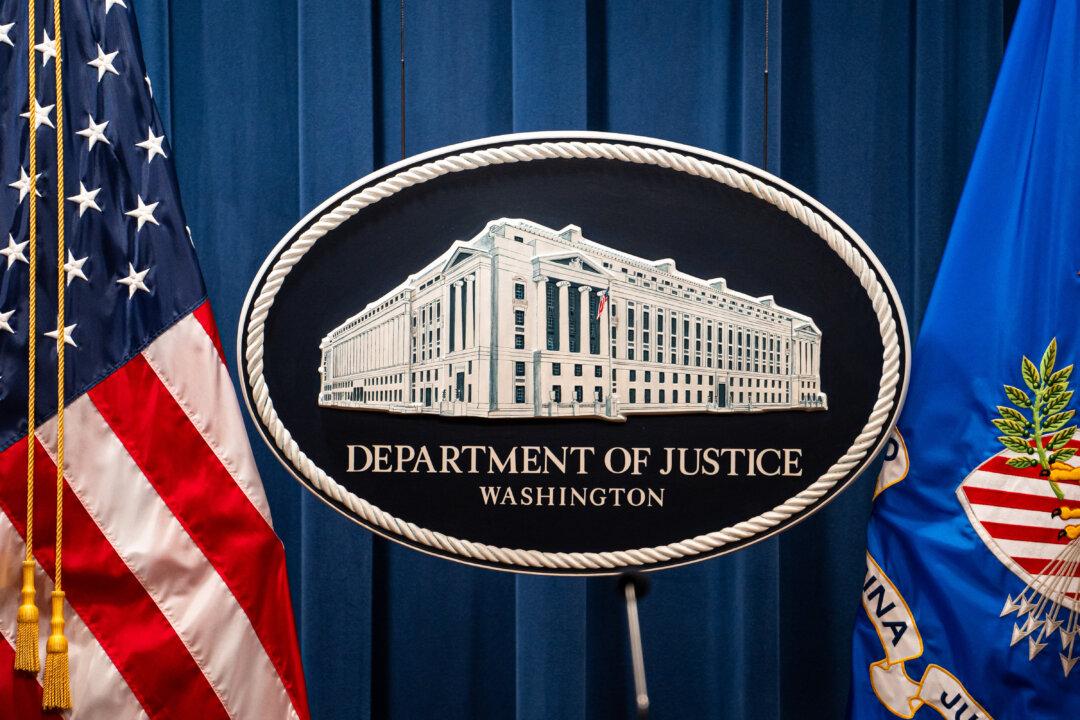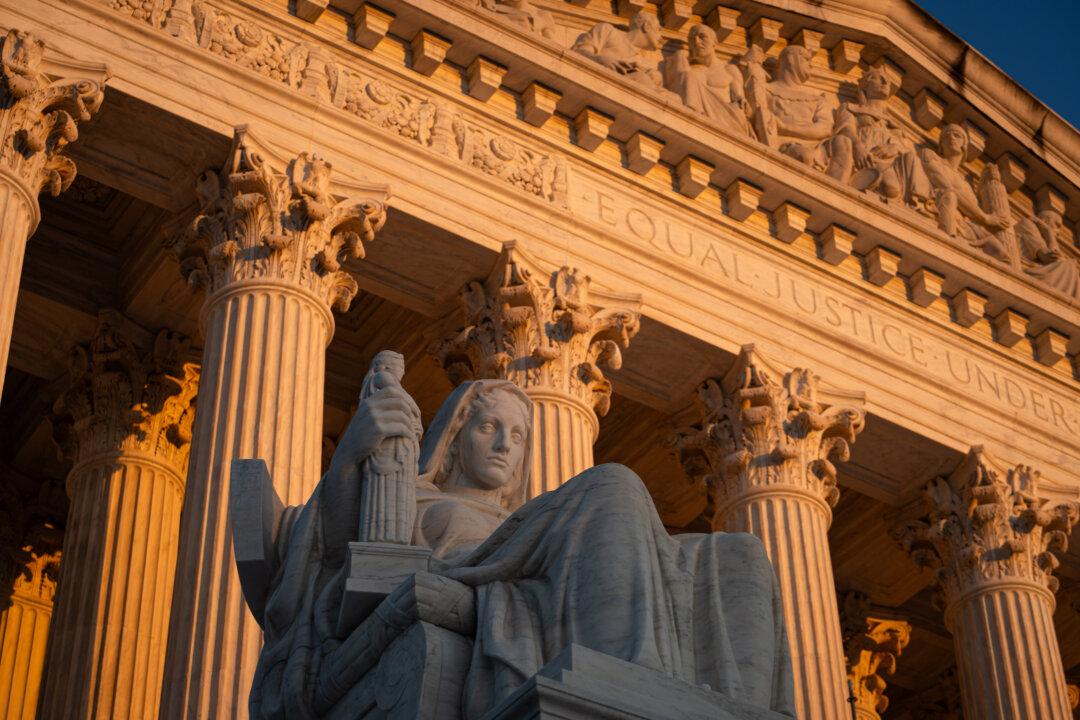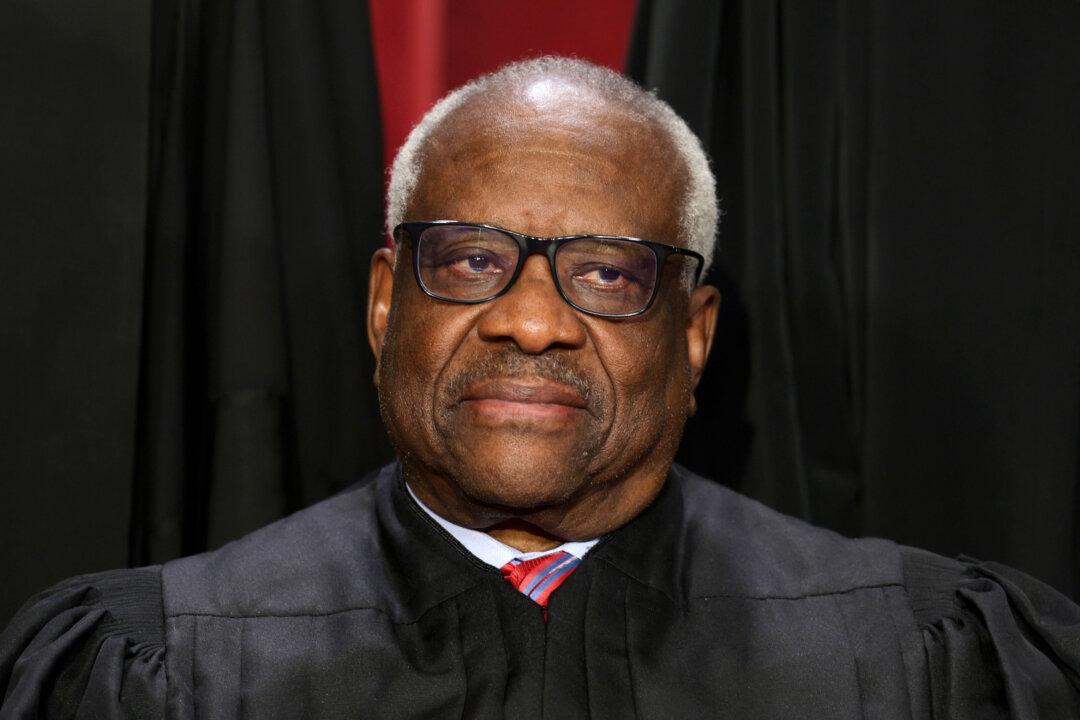Plaintiffs who enjoy partial success in civil rights lawsuits should not be entitled to have the governments they sue cover their attorneys’ fees, the Supreme Court heard on Oct. 8.
Georgia and 18 states support Virginia, arguing in a brief that states need “clear and predictable rules for when they might be exposed to [legal fee awards].” The U.S. Department of Justice also weighed in on Virginia’s behalf.
A federal district court issued a preliminary injunction in 2018 that temporarily blocked the statute, finding that drivers would probably succeed on the merits. Virginia did not appeal, and in April 2020, the Virginia General Assembly wiped the statute from the law books before a trial could take place.
The case hinges on the meaning of the phrase “prevailing party.”
Under the longstanding “American Rule,” each party in a lawsuit normally pays his or her own attorney’s fees, win or lose. However, some statutes require the payment of “a reasonable attorney’s fee” to the “prevailing party” in litigation.
For example, 42 U.S. Code Section 1988 requires the unsuccessful party to pay the attorney’s fees of parties who succeed in civil rights lawsuits.
In this case, five Virginia residents with suspended licenses sued in federal court to invalidate the Virginia statute, which was ultimately repealed.
The motorists wanted the state to cover attorney’s fees because they won a preliminary injunction, so they sued under Section 1988.
The state argued that it didn’t have to pay because the drivers didn’t qualify as prevailing parties because the case was never fully adjudicated on the merits.
The district court denied the drivers’ petition in June 2021, finding that granting a preliminary injunction didn’t make them a “prevailing party.”
The motorists appealed, and the U.S. Court of Appeals for the Fourth Circuit overturned the ruling in a 7–4 vote in August 2023.
The court said, “The plaintiffs here ‘prevailed’ in every sense needed to make them eligible for a fee award.”
Not requiring a government to pay may allow “government defendants to game the system” as they continue to press lawsuits in the hope of “outlast[ing] an indigent plaintiff,” the court said.
During oral arguments in the case brought to the Supreme Court, Virginia Solicitor General Erika Maley told the justices that when a preliminary injunction is “dissolved because a case is mooted by a non-judicial” event, such as in this case when the state Legislature decided to repeal the statute, that “does not qualify to make the plaintiff a prevailing party.”
U.S. Supreme Court Justice Samuel Alito seemed to echo the Fourth Circuit’s concerns.
Alito asked what happens when a federal district court issues a preliminary injunction and “makes factual findings that are going to be hard to reverse on appeal, and then the government says, ‘Wow, we’re facing the potential of a really heavy hit of attorney’s fees, so let’s just throw in the towel and change the rule or whatever is being challenged.’”
Justice Sonia Sotomayor said in the case the motorists wanted the preliminary injunction against the statute so that they could get their licenses back and keep driving their cars.
Maley replied, saying, “The problem is simply that there’s been no actual determination on the merits,” so the motorists aren’t prevailing parties.
Chief Justice John Roberts asked Maley if her position encouraged “wasteful litigation.”
He said that if a party obtains a preliminary injunction but has incurred substantial legal fees, the party may have an incentive to seek a permanent injunction.
Maley said Virginia’s position is “more judicially efficient” than the one advocated by the motorists. If a defendant in a lawsuit concludes that taking the case further is unlikely to alter the ultimate outcome, the defendant will have “a very strong incentive to settle after the preliminary injunction so it doesn’t continue to accrue the fees.”
Brian Schmalzbach, attorney for the motorists, said the case was clear-cut.
“The winner of an unreversed favorable judgment and tangible relief from a court is a prevailing party under section 1988,” he said.
Legal dictionaries say a prevailing party is one “in whose favor a judgment is awarded.”
“It does not require a final judgment,” he said.
The Supreme Court’s 2001 precedent of Buckhannon Board and Care Home v. West Virginia Department of Health and Human Resources supports the motorists’ position, Schmalzbach said.
The ruling held that being “awarded some relief by the court” establishes prevailing party status, he said.
“That is exactly what a preliminary injunction can do, and that is exactly what our preliminary injunction did here,” he said.
The Supreme Court is expected to issue a ruling in the case by June 2025.







